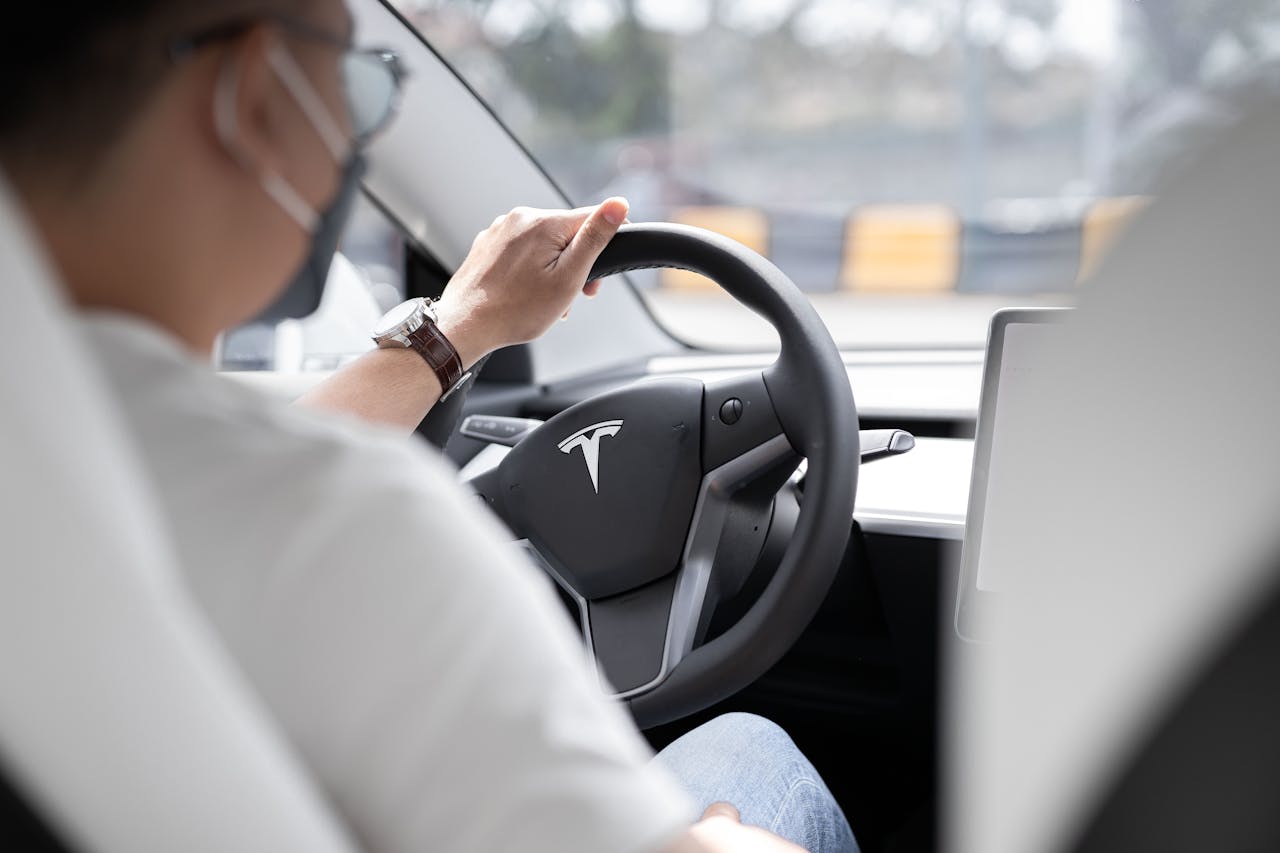The push for cleaner energy and a sustainable future is gaining momentum across the United States, with many states taking bold actions to reduce their reliance on gas-powered cars. These vehicles have long been a significant contributor to greenhouse gas emissions, and as concerns about climate change grow, there is a growing movement to transition to cleaner alternatives. Electric vehicles (EVs) are emerging as a viable solution to reduce carbon footprints and foster a cleaner environment. A number of states have set ambitious goals to eliminate gas-powered car sales within the next few decades. Below, we explore 10 states leading the charge against gas cars and how they are shaping the future of transportation.
1. California: The Trailblazer in Clean Transportation
California has long been a leader in environmental policy, and its commitment to reducing gas car emissions is one of the most ambitious in the country. The state has set a groundbreaking target to ban the sale of new gas-powered vehicles by 2035, making it the first state to take such a bold step. This policy is part of California’s broader strategy to achieve carbon neutrality by 2045. The state has already implemented stringent emissions standards, including the Zero-Emission Vehicle (ZEV) program, which mandates that a certain percentage of cars sold be electric. California is also investing heavily in EV infrastructure, such as charging stations, to make the transition easier for residents. With its influential role in shaping national policy, California is undoubtedly leading the charge against gas-powered vehicles.
2. New York: Committed to Cleaner Air and Energy
New York is another state that is making significant strides toward reducing its reliance on gas-powered vehicles. Governor Kathy Hochul’s administration has set a target to have all new car sales be zero-emission vehicles by 2035, following California’s lead. The state is also investing in expanding its EV infrastructure, including more charging stations to ensure that drivers have easy access to the resources they need. New York’s ambitious goal is part of a larger effort to reduce greenhouse gas emissions and improve air quality, especially in urban areas. The state’s commitment to clean energy and sustainable transportation is helping to pave the way for a future free from gas-powered cars.
3. Washington: Leading with Progressive Policies
Washington State has long been a champion for clean energy and environmental sustainability, and its efforts to reduce gas-powered vehicle emissions are no exception. Washington has set a goal to have all new cars sold in the state be electric by 2035. The state is also working to expand its EV infrastructure, with plans to increase the number of charging stations and ensure that residents have access to the resources they need to make the switch to electric vehicles. In addition, Washington has implemented several policies to incentivize the adoption of EVs, such as tax credits and rebates for electric vehicle buyers. With its forward-thinking policies and dedication to sustainability, Washington is setting an example for other states to follow.
4. Oregon: A Green Leader in the Pacific Northwest
Oregon is another state making significant strides in the fight against gas-powered vehicles. The state has committed to eliminating the sale of new gas-powered cars by 2035, aligning with California’s goals. Oregon is also focused on expanding its EV infrastructure, including the installation of more charging stations to support the growing number of electric vehicles on the road. The state has also implemented several programs to encourage residents to switch to electric vehicles, such as rebates and incentives for purchasing EVs. Oregon’s commitment to sustainability and clean energy solutions makes it a key player in the transition to a greener future.
5. Colorado: A Champion for Clean Transportation
Colorado is another state making impressive strides in reducing its reliance on gas-powered vehicles. The state has set an ambitious goal to have 940,000 electric vehicles on the road by 2030, which is part of its broader effort to reduce greenhouse gas emissions and promote clean transportation. Colorado is also focusing on expanding its EV infrastructure, including more charging stations, to make it easier for residents to adopt electric vehicles. In addition, the state has implemented several policies to incentivize EV adoption, such as tax credits and rebates for electric vehicle buyers. Colorado’s efforts are helping to shape a future where electric vehicles are the norm, not the exception.
6. Massachusetts: Embracing Clean Energy Solutions
Massachusetts is another state that has committed to reducing its reliance on gas-powered vehicles. The state has set a target to have 100% of new car sales be zero-emission vehicles by 2035, in line with California’s policy. Massachusetts is also focusing on expanding its EV charging infrastructure and providing incentives for residents to make the switch to electric vehicles. The state’s strong focus on clean energy and its commitment to reducing greenhouse gas emissions make it a leader in the push against gas-powered cars. Massachusetts is also exploring ways to integrate electric vehicles into its public transportation system, further reducing emissions and promoting sustainability.
7. Vermont: A Pioneer in Sustainable Transportation
Vermont may be a small state, but it is making big moves when it comes to reducing its carbon footprint. The state has committed to banning the sale of new gas-powered vehicles by 2035, joining other progressive states in the fight against climate change. Vermont is also working to expand its EV infrastructure and provide financial incentives for residents to purchase electric vehicles. The state’s dedication to sustainability and clean energy is helping to shape a future free from gas-powered cars. Vermont’s efforts may be on a smaller scale compared to larger states, but its commitment to clean transportation is nonetheless significant and impactful.
8. Connecticut: Committed to Zero-Emission Vehicles
Connecticut is another state that has set ambitious goals for reducing gas car emissions. The state has committed to having all new car sales be zero-emission vehicles by 2035, in line with California’s policy. Connecticut is also focusing on expanding its EV charging infrastructure and offering incentives for residents to make the switch to electric vehicles. The state’s commitment to clean energy and sustainability is evident in its policies, and it is making significant progress in reducing its reliance on gas-powered vehicles. Connecticut’s efforts are helping to create a cleaner, greener future for its residents and the planet.
9. New Jersey: Leading the Way on Clean Transportation
New Jersey is another state that is making significant progress in reducing its reliance on gas-powered vehicles. The state has set a goal to have 100% of new car sales be zero-emission vehicles by 2035. New Jersey has also been working to expand its EV charging network and provide incentives for residents to purchase electric vehicles. The state’s focus on clean energy solutions and its commitment to reducing greenhouse gas emissions make it a key player in the fight against gas cars. New Jersey’s policies are setting the stage for a future where electric vehicles are the norm, not the exception.
10. Maryland: A State Committed to Clean Transportation and Sustainability
Maryland is another state that is taking significant steps toward reducing its dependence on gas-powered vehicles. The state has set a goal to have 300,000 electric vehicles on the road by 2025 and is working toward the complete elimination of gas-powered car sales by 2035. Maryland is also focused on expanding its EV infrastructure and providing financial incentives for residents to switch to electric vehicles. The state’s commitment to clean energy and sustainability makes it a key player in the movement away from gas-powered cars. Maryland’s policies are helping to ensure that the state remains at the forefront of the clean energy revolution.
Final Thoughts
The transition from gas-powered vehicles to electric cars is a crucial step in combating climate change and creating a more sustainable future. These 10 states are leading the way in reducing their reliance on fossil fuels and promoting the use of clean energy solutions. By setting ambitious goals, expanding EV infrastructure, and providing incentives for residents to make the switch to electric vehicles, these states are helping to shape a future where gas cars are no longer the norm. As more states follow suit, we can expect to see even greater progress in the fight against climate change and the transition to a cleaner, greener future.












